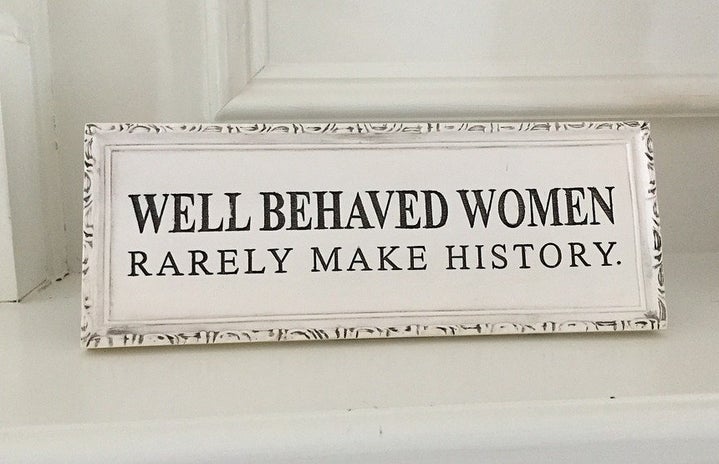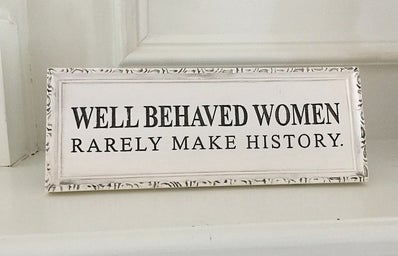In school, you’re barely taught about impactful women in history, let alone NH/PI women in history. As an NH/PI woman myself, I wanted to learn more about my heritage and the women from my ethnic background that have made an impact on the world I live in today. While attending The University of Hawaiʻi at Mānoa I’ve gotten to learn more about Native Hawaiian and Pacific Islander culture, Indigenous leaders, and the island’s history. According to the CAP, there were 803,000 NH/PI women living in the United States in 2019. So why aren’t we hearing about them?!
Here are three NH/PI women that I think everyone should know because they have broken down unique barriers that no other woman faced, they have battled intersectional oppression (both being a woman and being an ethnicity), and they are incredibly resilient, like their ancestors.
- Hinaleimoana Kwai Kong Wong-Kalu
-
During my time as an undergraduate student, I was never taught about NH/PI people in my general history courses. I had to go and seek out this history, when it really should be incorporated in a so-called “regular” history class. My school was just starting a Pacific and Oceanic Studies minor, so there weren’t any courses dedicated to NH/PI history at the time. So, I decided to take a Native American and Indigenous Studies course in order to learn more about Indigenous people.
Through this course, I learned about Hinaleimoana Kwai Kong Wong-Kalu, otherwise known as Kumu Hina. This kumu (teacher) is unlike many others. She has overcome immense barriers as a mahu wahine (transgender woman). Hina has paved the way for others that want to express themselves and be who they truly want to be, all while preserving and educating others on Kanaka Maoli (Native Hawaiian) culture and traditions. She has made a large impact on not only the NH/PI community, but also the LGBTQ community as well. She was a founding member of Kulia Na Mamoa, a group to better the lives for other mahu wahine (transgender woman). She also was the first transgender woman to run for a board position for an Office of Hawaiian Affairs position. Everyone should know the milestones that Kumu Hina has reached for the communities she serves and what we can do to help in the future.
- Isabella Kauakea Yau Yung Aiona
-
Something that I’ve noticed through my experiences is that there are so many barriers and challenges that women face while working in the STEM (Science, technology, engineering, and mathematics) field. Many women are told they’re not smart enough to be a scientist, which is just incorrect and degrading. Someone I looked up to while taking my STEM courses as a student was Isabella Kauakea Yau Yung Aiona, or known as Isabella Aiona Abbott. Abbott was a Native Hawaiian and Chinese ethnobotanist from Maui and was the first NH woman to graduate with a PhD in the STEM field. As a child, she learned about traditional Hawaiian practices from her mother. These ancient practices incorporated limu (seaweed) which inspired Abott to continue working with the species and other algae around Hawaiʻi for her career. She discovered over 200 species of algae in the Pacific region, wrote over 150 publications, and was a well-renowned educator. This woman made groundbreaking history in the STEM field while incorporating traditional Hawaiian practices used to this day. Abbott has helped paved the way for women wanting to work in the science field.
- Mary Abigail Tui Kawena‘ulaokalaniohiʻiakaikapoliopelekawahineʻaihonua Wiggin Pukui
-
Native Hawaiian history, language, and culture has always been resilient even through the introduction of disease, colonization, and gentrification. These ancient practices and traditions are so strong because of people like Mary Kawena Pukui. Pukui was a well known historian and educator whose job was to preserve Hawaiian culture and language. She had a large position in beginning the Hawaiian Renaissance of the 1970s which is when Native Hawaiians pushed back on the Americanization/industrialization of Hawaiʻi and began to revitalize their culture. The Native Hawaiian language was banned in 1896 and wouldn’t be legalized until the Renaissance, thanks to Pukui who was able to remember and restore the language. Without her and the others that spoke ʻŌlelo Hawaiʻi (Hawaiian language), it would be forgotten today and I wouldn’t be able to take it as a class at my university. Not only was Pukui celebrated for her revitalization of the Native language, but she was also a writer who wrote very important pieces of literature, like “Hawaiian-English Dictionary,” “Place Names of Hawaii,” and “ʻŌlelo Noʻeau.” Pukui made it possible for moʻopuna (future generations) to learn the Indigenous language of their ancestors and she also made it possible for future students to learn about the Native Hawaiian culture (which everyone should take the time to learn, especially if you are a visitor to Hawaiʻi).


